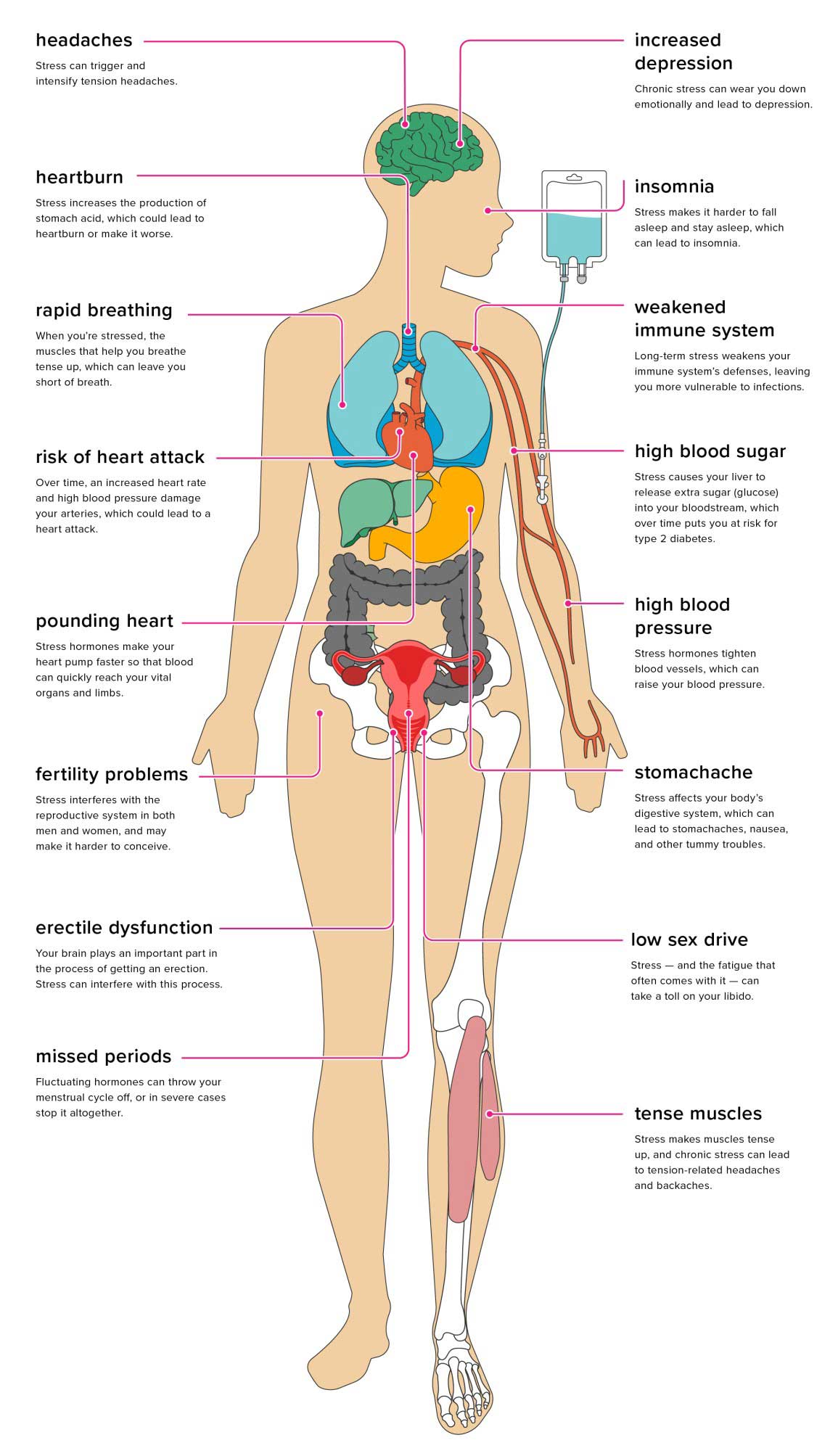Article At A Glance:
- The hormone cortisol is produced in the body in response to stress to prepare the body for fight or flight – which is a good thing.
- But in today’s stress-fuelled world, your body can produce too much cortisol resulting to weight loss resistance.
- Good news: You can control cortisol and defeat weight loss resistance. Read on….
If you’re trying to lose weight but you’re having a problem achieving your weight loss goals, it’s probably because you have too much of the “stress” hormone cortisol.
Read on to find out how cortisol can cause weight loss resistance, and what you can do to overcome its effects.
WHAT IS CORTISOL?
Cortisol is commonly referred to as the stress hormone due to its role in the body’s stress response, but it also has other important roles such as reducing inflammation, increasing blood sugar, helping in nutrient metabolism (1, 2).
Cortisol is normally released in close relation with the circadian rhythm, with 50-60% being released after waking up.
HOW CORTISOL CAUSES WEIGHT LOSS RESISTANCE
During times of stress, cortisol and adrenaline are released from your adrenal glands, located just above the kidneys.

This triggers an increase in heart rate and energy levels, preparing your body to fight or flee.
This is a good thing, but in today’s crisis-fueled world, we can end up producing too much cortisol – and this can cause problems (1).
A rise in cortisol levels make you crave for carbs and sweets, which in turn lead to over-eating and hunger. As a result, you get elevated blood sugar, which gets converted to fat for long-term storage (2).
Cortisol actually signals the body to store fat (3). Especially belly fat (9), which makes it hard to lose weight.
Secondly, elevated cortisol levels over extended periods end up depleting happy hormones such as serotonin. You end up getting too little sleep and feeling fatigued (4, 5).
Likewise, high cortisol levels are linked to depression, cloudiness and brain fog (6). This causes a hopeless loop – the more stressed you are, the more you eat, and the more you gain weight!
Actually, cortisol causes your body to break down muscles for energy! The less muscle you have the lower your metabolism, and the more fat your body stores!
In other words, studies show that higher levels of cortisol lead to an increased appetite and over-eating (8, 9). This leads to weight gain.
Elevated levels of cortisol for a long time cause cushing’s syndrome:

EFFECTS OF LONG-TERM STRESS
You’re sitting in traffic, late for an important appointment. Your hypothalamus, a tiny control tower in your brain, decides to fire off an order: Send the stress hormone!
These stress hormones trigger your fight or flight reaction: your heart races, your breath quickens, your muscles tense up ready for action.
This is a good thing. It was designed to protect your body.
But prolonged stress response that keeps firing day after day is bad for your health and could put you at serious risk.
Pic courtesy of Healthline
BEST SUPPLEMENTS FOR HEALTHY CORTISOL BALANCE
Studies have shown that at least 2 supplements can lower cortisol levels:
Ashwagandha
Ashwagandha is an Asian herbal supplement, also called Indian Ginseng, used to treat anxiety and help people adapt to stress. Studies have shown ashwagandha to reduce cortisol levels (10).
In fact, it’s been shown to reduce stress, the risk of illness, and fatigue (11). Findings of clinical research as so compelling to suggest Ashwagandha can treat neurodegenerative disorders (12).
OTHER NATURAL WAYS TO LOWER CORTISOL LEVELS
- Reduce stress: – remove yourself from stressful situations, especially if you can recognize the source of your stress. Magnesium supplements can help you reduce stress.
- Get some good sleep:– Sleep deprivation increases cortisol levels (13, 14). Timing, length and quality of sleep all influence cortisol (10). Keep a consistent schedule, avoid sleep interruptions, and get 7-8 hours to keep cortisol in a normal rhythm.
- Exercise: – Exercise decreases cortisol at night. Intense exercise increases cortisol in the short term due to stress on the body, but still decreases it the following night (11).
- Relaxation: – Many relaxation techniques are proven to lower cortisol. This includes deep breathing, yoga and tai chi, music and massage.
- Have fun: – having fun has been shown to keep cortisol down (12, 14). Taking up a hobby, spending time outdoors and laughing can all help.
- Maintain healthy relationships: – Relationships with friends and family can lead to happiness and lower stress and cortisol levels.
HOW KETO HELPS IN WEIGHT LOSS RESISTANCE
Ketosis and keto diet play an important role in weight loss resistance and managing a healthy weight.
- Ketones, produced during ketosis, help balance cholecystokinin levels so you actually feel satisfied sooner after eating (13). You end up eating less.
- Ketones also suppress ghlerin, so you feel less hungry. This is why people on keto experience less hunger (14).
- Unlike eating carbs, when you’re in ketosis, the ketones don’t interfere with leptin, so you tend to eat less.
Overall, when you’re in ketosis, you tend to feel hungry less often, and you eat less food. Keto helps you maintain your weight management goals.
Our supplement Keto Supplements can help you maintain ketosis easily.






